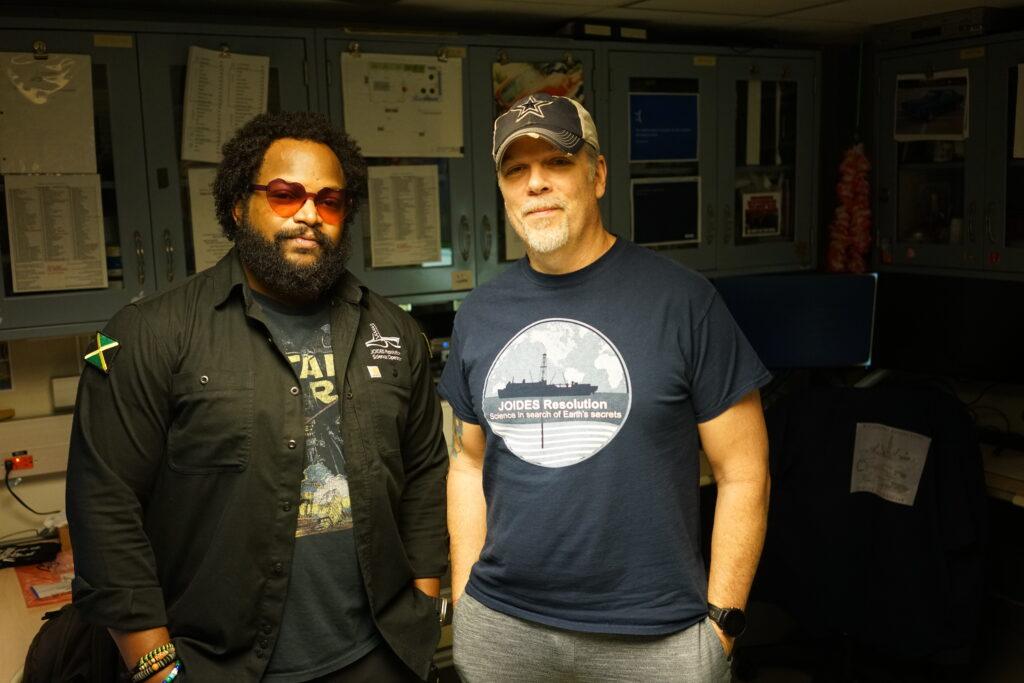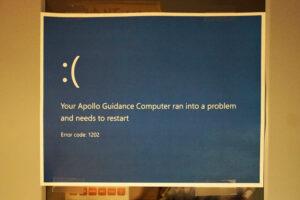
Tech Turmoil Finds Its Way Into the Arctic
The group What’s App chat is typically reserved for memes and misplaced laundry, but two days ago, the expedition’s project manager wrote a long message to explain why things had come to a sudden halt. “All lab computers are down,” began the message that arrived sometime around 7am. A quick response by Isuri Kapuge, a member of the sedimentology team, explained that the issue was worldwide.
Working in the Arctic Circle at times feels like being on another planet. This feeling is only amplified by the constant daylight and often late arrival of news. Yesterday morning, however, a global software malfunction found its way onto this planet and shut down most of the lab-based computers. The dreadful and familiar “blue screen of death” appeared at the start of the day across most working computers. More than just an inconvenience, the bug brought coring operations to a halt because the computer necessary for measuring the samples that determine the probability of encountering problematic gases was one of the many blue screens.

“It’s a double edged sword, how much we rely on technology. Without it, we couldn’t do anything that we do out here,” Explains Kerry Mullins, the marine computer specialist onboard. What began as a single computer down, quickly became most of the ship. The problem only worsened when Kerry learned the computer responsible for managing headspace samples was down. Headspace samples measure the gas contents of the cores coming in, and the ratio of heavy to light gases helps predict how close a dangerous oil or gas reservoir could be to the drill site. Without having this data, it is like driving with a blindfold on, and for the safety of the expedition, coring operations had to be put on pause until the computer was up and running again. Kerry goes on to say, “You never want to wake up your shift mate, and you do everything you can to avoid it, but after finding a quick patch to fix the problem, the decision was made to wake up Nick to help implement it.”
“When you see a few missed calls from your boss in the middle of the night, you know things are bad.” Nick Logan was woken up before the start of his shift to help get the systems back up. He jumped into action, bringing the servers back up online. “Things could have been a lot worse, in so many ways we got lucky that we didn’t have a perfect storm come together, if so we could have been sitting stranded like many others still are” explains Nick. The two recount the story of how things unfolded with humility often making a point to explain how much luck was on their side in the moment. These expeditions can take decades to plan, and while at sea, every moment counts. Whatever luck was on the side of this expedition, without question, the speed at which operations were able to resume was the result of quick action on Nick and Kerry’s part. What could have lasted days, only lasted a few hours.
Quick thinking and quick action got everything up and running as quickly, luck only assisted this fact. Kerry explained to me that it was a single line of unchecked code in the kernel that was released that caused the entire meltdown. Much of the world is still affected by this line of code: flights are still not rescheduled, businesses are still not running, and University servers are still down.
It is scary to think of the speed at which the problem arrived at our research ship so far north. Another reminder that although the Arctic feels like another planet, it very much is not, and the issues that are faced elsewhere can find their way up here faster than we expect. Perhaps this is an illustration of why the climate research on this expedition is so important; the world is smaller than we think, and change can come faster than we want.
